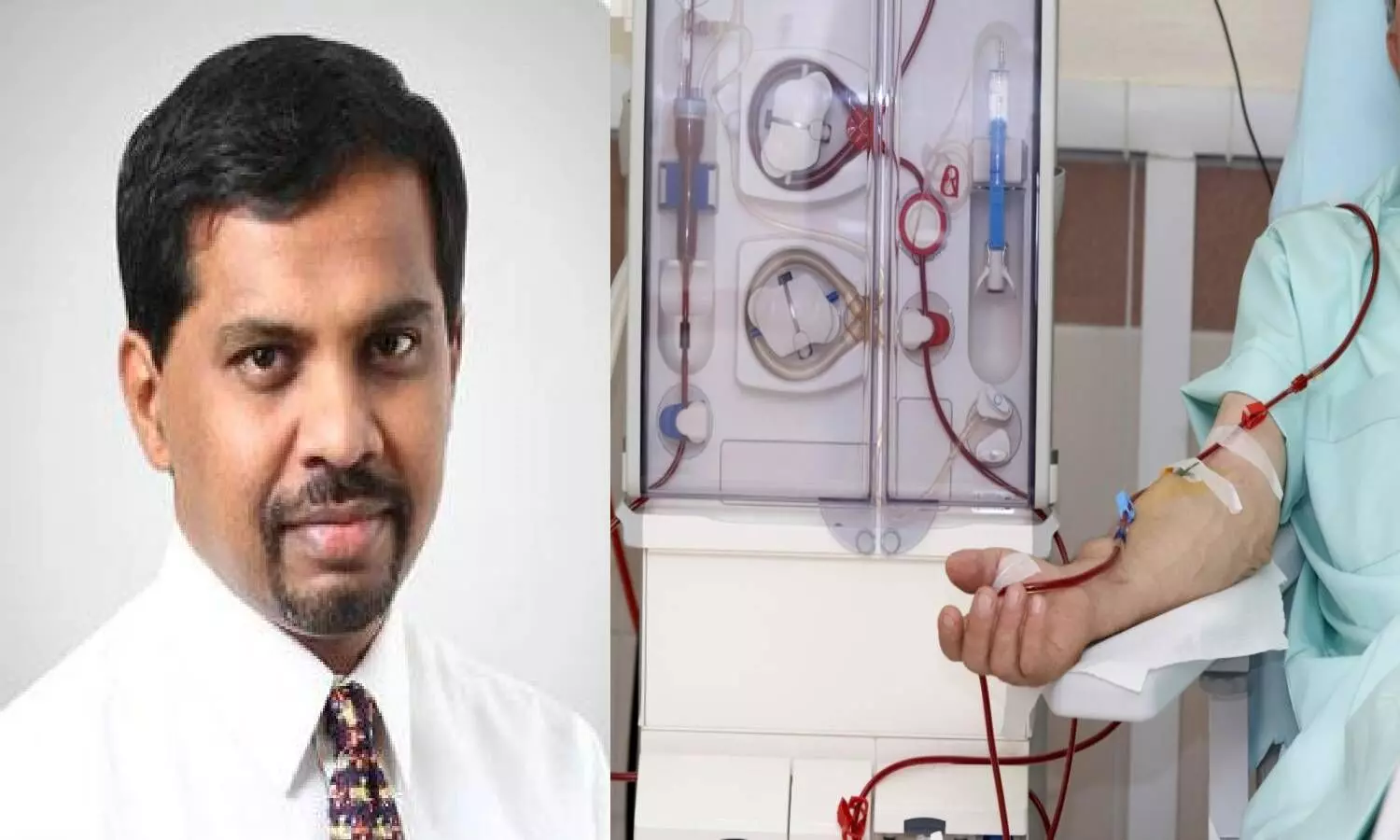Expert Advice: Dialysis safety- what patients need to know
Patient safety is the core aspect of patient care and dialysis care is no exception. It rests on the core ethical principle of "First do no harm". It is doubly important because haemodialysis is among the most advanced technology used in outpatient settings.
By Newsmeter NetworkPublished on : 10 Dec 2020 12:11 PM IST

By Dr Suresh Sankar
Patient safety is the core aspect of patient care and dialysis care is no exception. It rests on the core ethical principle of "First do no harm". It is doubly important because haemodialysis is among the most advanced technology used in outpatient settings. Though there are safety checks and controls built in the technology used, the processes of care, the capability of the health care worker delivering the service and an engaged and informed patient are key to achieve the desirabl topmost priority at a dialysis centre.
Patient safety events in dialysis can occur in the following aspects of care
1. Initiation and ending of the dialysis session
2. Type of dialyzer used and whether the appropriate labelled dialyzer was used
3. Amount of blood thinner used
4. Medications
5. Fluid removal on dialysis
6. Infections
What you can do to make your treatments safer
It starts with knowing where safety matters and doing the right action
• Give time to your technician and nurse the time for the process of care when starting and ending your dialysis session.
• Know about the kind of kidney filter used and if it is to be reused, the identity has been verified. You could gently ask your care provider to recheck it especially if there is another patient with the same or similar name in your centre
• Ask your doctor about the amount of blood thinner you will need and know the same recommendations are followed
• Ensure your prescription is updated every few months every few weeks and insist on a copy of your medication prescription is maintained in your dialysis chart
• Limit your fluid intake to what is appropriate for you and do not insist on "maximal fluid removal" during a dialysis session. Based on each individual's body weight, duration of the session, there is a limit to how much fluid can be removed.
• Clean your fistula site with soap and water before every dialysis treatment
• Clean your hands with soap and water or waterless alcohol-based sanitizer before you start your dialysis session and after you leave
• If you have a catheter, wear a mask and request your care provider to wear a mask when starting and ending dialysis. Know the signs when a catheter could be infected
• If you don't have a permanent fistula, but will need dialysis for your lifetime, discuss the early placement of a fistula with your doctor, before the need for dialysis
• Ensure you have taken the vaccines recommended for you at the right dose and frequency.
Dr Suresh Sankar is a Nephrologist & Senior VP, Clinical Affairs, NephroPlus
Views are personal
Next Story